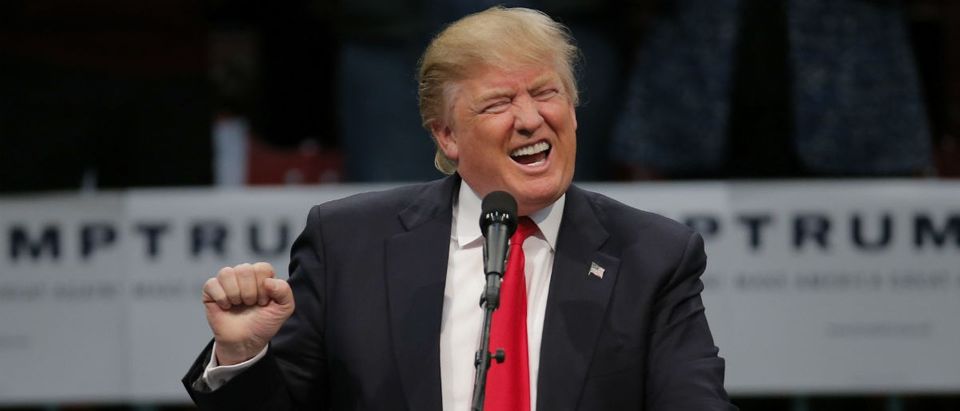With Republican fears of Donald Trump winning the nomination reaching a fever pitch, a barrage of attack ads are being rolled out to bring down the primary front-runner.
In one of the commercials set to convince voters to not vote for Trump, the mogul is savaged for his frequent use of profanity. Featuring such infamous moments as The Donald calling Ted Cruz a “pussy” and declaring he’ll “beat the shit” out of ISIS, the ad hopes to portray Trump as far too crude to hold the highest office in the land.
That’s been one of the more common complaints about Trump from his conservative critics and rival candidates like Marco Rubio have adopted it in their campaign rhetoric. And it’s not just his obvious adversaries who have a problem with Trump’s vulgarity.
Manhattan Institute scholar Heather Mac Donald penned a column Monday saying Trump’s “boorish” behavior disqualifies him from being president — even though the conservative writer believes the billionaire takes a terrific stance on immigration, refuses to kowtow to political correctness and delivers a much-needed wake-up call to the Republican establishment.
“[H]owever valid Trump’s immigration message and however deserved the thrashing of the GOP establishment, Trump would do far more harm than good as President. The problem is not with his inchoate policy positions but rather with his repellent mean-spiritedness and all-consuming narcissism. Trump would set a model of behavior, especially for boys, that would drag American civility into the gutter,” Mac Donald writes.
Mac Donald concludes that Trump is a “fatally flawed vessel” for the kind of voter revolt she’d like to see within the GOP and cannot support him for that reason.
But while some may find The Donald’s potty mouth loathsome, particularly the above-mentioned groups, it’s actually an important part of his particular brand of populism.
Though Mac Donald disputes the characterization of Trump as populist because his “attention span is too fleeting,” The Donald is most certainly a populist in the cultural sense.
As The Atlantic has previously noted, Trump’s campaign bears an uncanny resemblance to raunchy American comedy classics, especially the 1980 film “Caddyshack.”
In that movie, a nouveau riche golfer played by Rodney Dangerfield is reluctantly allowed to join a prestigious group full of uptight, snooty old money types. Dangerfield’s crude antics enrage the golf club’s establishment, but endears him to the blue-collar caddies and viewers are supposed to cheer him and his new-found allies as they humiliate and triumph over the movie’s snobby antagonists.
“Caddyshack” certainly provides an apt metaphor for how Trump has rallied working-class whites to his cause, much to the consternation of the Republican establishment, and how his crude rhetoric, much of it used against those out-of-touch party elites, is cheered on by his fans and detested by his critics.
The narrative portrayed in “Caddyshack” is also found in dozens of other popular media items and films like “Animal House” and “Happy Gilmore” share the same basic premise. Blame it on our culture, but a large number of Americans like how The Donald can enrage so many with the establishment with just a few impolite words.
As a sign of his success among the working-class demographic, Trump won the Michigan county Tuesday night that inspired the “Reagan Democrat” label over thirty years ago.
With America fully embracing an anti-establishment mood at the moment, all the criticism over Trump’s four-letter words from pundits and super PACs will go across about as well as Caddyshack’s villain wagging his finger at the insolence of his former caddy.


